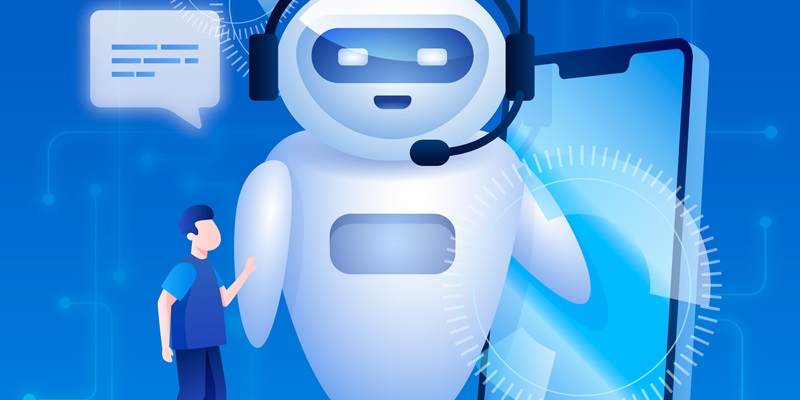As technology advances rapidly, the fusion of blockchain and artificial intelligence (AI) has emerged as a promising synergy in various industries. In the realm of software development, AI chatbots are revolutionizing the way developers build applications, offering unparalleled efficiency and productivity. This article explores the transformative impact of AI chatbots on developers’ workflows, their role in engineering development support, and the implications for the future of software development.
The Impact of AI Chatbots on Developers’ Productivity and Efficiency
Gone are the days of tedious manual tasks, thanks to the advent of AI chatbots. These intelligent virtual assistants leverage natural language processing and machine learning algorithms to streamline developers’ workflows. By automating repetitive tasks and providing instant support, AI chatbots help developers work with remarkable efficiency and productivity. This significantly reduces the development time required for complex projects, accelerating the pace of innovation in the software development landscape.
Use cases of AI in engineering development support.
One of the primary use cases for AI in software development is engineering development support. AI-powered chatbots offer developers real-time assistance in problem-solving, debugging, and code optimization. With their vast knowledge base and ability to analyze large volumes of code, AI chatbots can provide valuable insights and recommendations, enabling developers to overcome challenges and develop high-quality software more effectively.
Increasing importance of AI tools for developers
With the exponential growth of technology, AI tools are becoming increasingly essential for developers. These tools simplify complex tasks such as data analysis, pattern recognition, and decision-making, empowering developers to focus on more critical aspects of software development. By integrating AI capabilities seamlessly into their workflow, developers gain valuable time and resources needed to innovate and build sophisticated applications.
SettleMint’s AI Genie: Engineering Assistant for Smart Contract Development
An exemplar of this transformative technology is SettleMint’s AI Genie, an engineering assistant integrated into their platform for rapid smart contract development. The AI Genie harnesses the power of AI to provide developers with a comprehensive set of tools, templates, and guidance tailored specifically for smart contract development. By leveraging AI-driven assistance, developers can accelerate the process of transforming ideas into deployable blockchain applications.
AI Genie’s Role in Accelerating Blockchain Application Deployment
The AI Genie acts as a catalyst to expedite the journey from concept to production in blockchain application development. With its ability to provide quick recommendations, identify potential pitfalls, and offer best practices, the AI Genie aids organizations in streamlining their development processes. By reducing the time and effort required for smart contract development, organizations can bring their blockchain applications to market faster, gaining a significant competitive edge.
The Potential of Chatbots in Assisted Learning
Apart from their role in providing engineering development support, AI chatbots hold immense potential in the field of assisted learning. As developers interact with these intelligent assistants, they not only receive guidance on specific tasks but also acquire valuable knowledge and new skills. Chatbots can offer personalized learning experiences, assisting developers in acquiring expertise in blockchain and AI technologies. This continuous learning approach helps foster growth and innovation within the developer community.
The Role of AI-Driven Smart Contracts in Expediting Technological Development
While AI chatbots enhance developers’ efficiency, AI-driven smart contracts themselves play a crucial role in expediting technical development. Traditional smart contracts require extensive manual coding, but AI-driven smart contracts leverage machine learning algorithms to automate and optimize the coding process. By effectively reducing the time and human effort required to create complex smart contracts, this technology expedites the overall development cycle and enables developers to focus on higher-order tasks.
Addressing Ethical Bias in AI Chatbots through Bias Detection and Mitigation Techniques
When implementing AI chatbots, ethical bias becomes a significant concern. However, companies like Magma AI are actively addressing this issue by using sophisticated bias detection and mitigation techniques. These techniques ensure fair and unbiased interactions with users, promoting inclusivity and mitigating unintended biases. By taking ethical considerations into account, AI chatbots can become more reliable and trustworthy tools for developers.
The Inclusive and Accessible Nature of AI Chatbots in Advancing Web3 Development
AI chatbots have the potential to democratize access to Web3 development, making it more inclusive and accessible to a wide range of developers. By providing intuitive interfaces, personalized learning pathways, and instant support, AI chatbots empower developers of all skill levels to navigate the complexities of blockchain and AI technologies. This inclusive approach propels Web3 forward and fosters a diverse and vibrant developer community.
The convergence of blockchain and AI has sparked a paradigm shift in software development. AI chatbots assist developers in building applications faster and more efficiently, enabling groundbreaking innovations. With AI by their side, developers can unlock new levels of productivity, overcome challenges, and bring their ideas to fruition expeditiously. As this transformative technology continues to evolve, the future of software development shines brighter than ever, driven by the power of AI chatbots.

